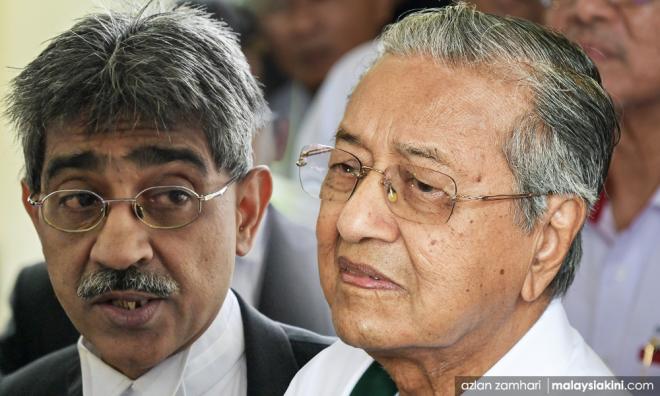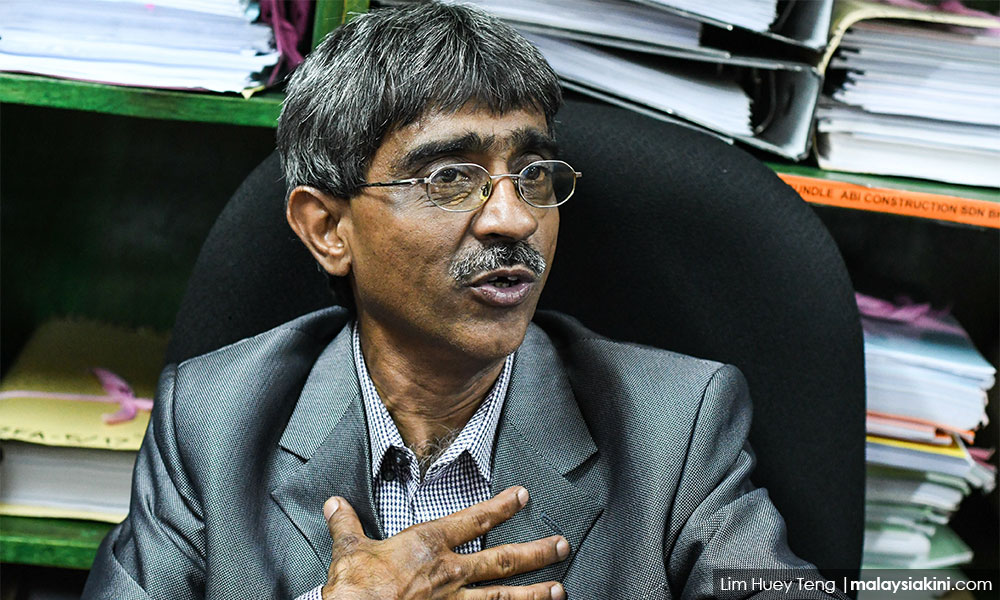
Dr Mahathir Mohamad has distanced himself from lawyer Haniff Khatri Abdulla's role in the legal action to set aside the royal pardon granted to PKR president Anwar Ibrahim in 2018.
In a media statement this afternoon, his office said while Haniff has represented Mahathir in various cases since 2015, he is not the former premier's personal lawyer.
“Haniff's involvement in other cases (not related to Mahathir) is based on his own decisions, including the action to set aside Anwar's royal pardon.
“This case and Haniff's decision (to represent the plaintiff) have nothing to do with Mahathir,” it added.
Haniff is acting for lawyer Mohd Khairul Azam Abdul Aziz, who filed the legal action on Feb 26 to set aside the royal pardon given to Anwar over his sodomy conviction.
Arguing against Anwar's bid to strike out the matter last week, Haniff told the Kuala Lumpur High Court that the Pardons Board gave the wrong advice that a pardon covered the sodomy conviction.
The veteran lawyer urged the court to hear the main suit in order to evaluate the submissions on multiple triable issues in the matter.
Haniff said this included the issue of the allegedly improperly-formed Pardons Board as well as the purported wrong advice given on the extent of the Yang di-Pertuan Agong's power to grant a pardon, among others.

The lawyer reiterated that his client's application does not challenge the power of the Agong to issue a pardon but rather that the Pardons Board had given the wrong advice on the extent of His Majesty's constitutional power under Article 42 (1) of the Federal Constitution in granting pardon.
The article states that the Yang di-Pertuan Agong has the power to grant pardons, reprieves and respites in respect of all offences which have been tried by court-martial and all offences committed in the Federal Territories of Kuala Lumpur, Labuan and Putrajaya; and the ruler or Yang di-Pertua Negeri of a State has the power to grant pardons, reprieves and respites in respect of all other offences committed in his state.
The Pardons Board’s legal representative, senior federal counsel Natrah Idris, had argued that the Agong had properly exercised his constitutional power under Article 42 in granting the pardon.
Natrah then applied to the court for additional time to prepare more in-depth submissions on the extent of the Agong's power in granting a pardon. The court allowed this application.
Anwar’s counsel J Leela then submitted that the striking-out bid should be allowed because the plaintiff does not have a reasonable cause of action in the matter.
The High Court fixed Sept 21 for its decision on the application to strike out the main legal challenge.
The court also set Aug 21 for the legal teams of the Pardons Board and Anwar to file further written submissions on the issues of the extent of the Agong’s constitutional power in granting a pardon, and whether the Pardons Board was properly constituted in May 2018. - Mkini



No comments:
Post a Comment
Note: Only a member of this blog may post a comment.